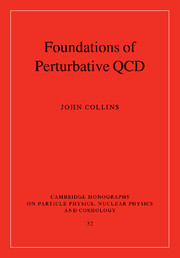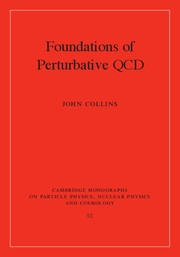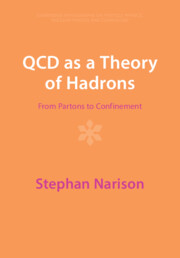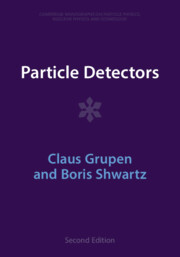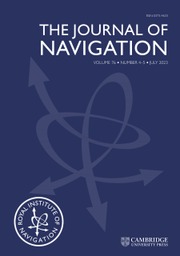Foundations of Perturbative QCD
The most non-trivial of the established microscopic theories of physics is quantum chromodynamics, QCD, the theory of the strong interaction. A critical link between theory and experiment is provided by the methods of perturbative QCD, notably the well-known factorization theorems. Giving an accurate account of the concepts, theorems and their justification, this book is a systematic treatment of perturbative QCD. As well as giving a mathematical treatment, the book relates the concepts to experimental data, giving strong motivations for the methods. It also examines in detail transverse-momentum-dependent parton densities, an increasingly important subject not normally treated in other books. Ideal for graduate students starting their work in high-energy physics, it will also interest experienced researchers wanting a clear account of the subject. First published in 2011, this title has been reissued as an Open Access publication on Cambridge Core.
- Relates the concepts to experimental data to give strong motivations for the methods
- Gives full mathematical treatments so readers can understand the validity of the results
- Examines in detail transverse-momentum-dependent parton densities, which are not usually treated in books
- Reissued as an Open Access title on Cambridge Core
Product details
July 2023Paperback
9781009401821
638 pages
245 × 169 × 34 mm
1.11kg
Available
Table of Contents
- 1. Introduction
- 2. Why QCD?
- 3. Basics of QCD
- 4. Infra-red safety and non-safety
- 5. Libby–Sterman analysis and power counting
- 6. Parton model to parton theory I
- 7. Parton model to parton theory II
- 8. Factorization
- 9. Corrections to the parton model in QCD
- 10. Factorization and subtractions
- 11. DIS in QCD
- 12. Fragmentation
- 13. TMD factorization
- 14. Hadron-hadron collisions
- 15. More advanced topics
- Appendices
- References
- Index.


